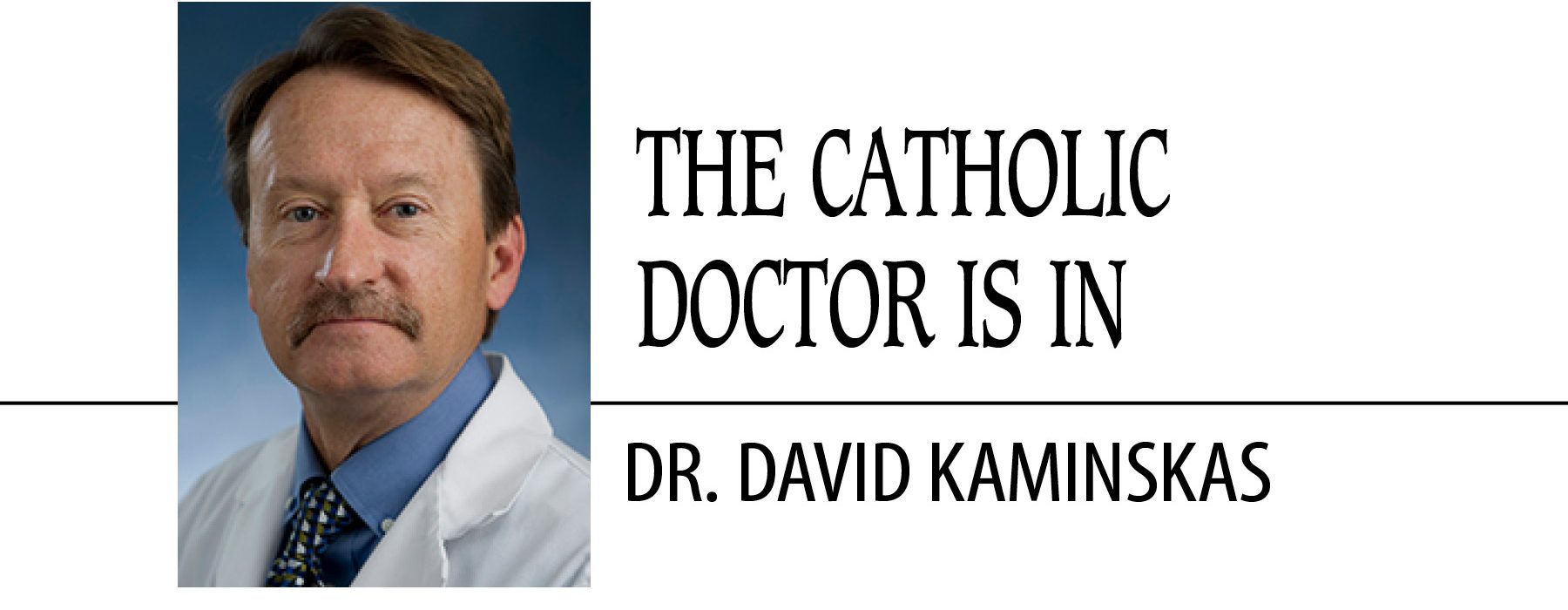November 12, 2019 // Perspective
Physician, heal thyself
The Catholic Medical Association convened its 88th annual educational conference recently in Nashville, Tennessee. This was the second time I have attended the national conference, and my bride accompanied me as well. There were approximately 900 attendees, which set a record.
About half were physicians and the rest were health care workers and spouses. I can attest that there are many health care workers in this country who are fully dedicated to upholding the principles of the Catholic faith, and the numbers are growing.
The conference focused on the increasing problem of burnout in health care professionals. Studies have shown that approximately 50% of physicians are burned out. The suicide rate is three times higher than the normal population.
We live in a troubled world that puts all kinds of demands on the health care worker. The demands of our government to use electronic medical records has put a great strain on the doctor-patient relationship and has contributed to feeling less joy and satisfaction as we attend to our fellow man. Doctors no longer feel that they are in control and are treated just as any other employee in a large system. Through all this, there is a diminished sense of personal accomplishment and meaning.
The first day started, as every day does at these conferences, with a 7 a.m. Mass that was attended by close to 100% of the attendees. We were honored to have the Most Rev. James D. Conley, Bishop of Lincoln, concelebrate Mass with the 20 priests attending the conference. He told us: “This week you gather to reflect on the truth that we work hand in hand with the divine physician, as His assistants, to glorify the Lord of all Life. It is only when we have the humility to acknowledge that we are often powerless and in need of being healed ourselves that we are able to step aside and let the grace and divine power work through us. Then we can admit that there is a deeper restoration beyond a physical cure, taking into account the needs of the whole person.”
One of the early speakers urged us to start our day in health care with what she called a “stress inoculation.” Before we see our first patient, we must pray for patience and fortitude. We must prepare ourselves, with the help of the Holy Spirit, to serve those people who may be difficult to attend to.
Another speaker discussed “compassion fatigue.” With dozens of similar encounters every day, the health care worker can gradually become less engaged with the patients’ problems and eventually lose compassion for the pain and suffering they see in their patients. One presenter discussed how to resist the provider-of-services model and recover the intrinsic rewards of practicing good medicine.
Our administrators want physicians to see more and more patients and to impeccably document the encounter so they can charge more and increase profits for the owners of the medical system. This speaker asked us to reject the idea of setting aside our personal convictions and to maintain our personal beliefs as we recover the Christian vision for our work. He urged us to stay focused on each patient and to reject becoming detached. This will ultimately prevent us from heading down the path to burnout.
Multiple speakers suggested a regular plan of exercise to reduce stress and depression. There is not only proof for the favorable chemical changes in the brain with exercise, but they also presented imaging studies that show improvement and strengthening of the hippocampus and amygdala, which are key areas of the brain that can help us maintain happiness and fulfillment.
Several presentations discussed the importance of gratitude, and one suggested writing down three blessings each day to stay focused on “the good stuff.” Your happiness hormones — dopamine and serotonin — actually go up in the brain if you practice gratitude. And get this: There is actually scientific data showing that those who practice gratitude actually live longer!
It became abundantly clear during the very first day of the conference that the tools described by speakers to help heal burnout were just as apropos to any profession, not just doctors and health care workers. My wife attested to the fact that all in attendance were inspired and rejuvenated. If you work in a factory, serve in a restaurant or are a stay-at-home mom, you are at risk for burnout. Do not lose sight of your meaning in life. We are all soldiers for Christ. Small contributions are meaningful especially when done with love.
The conference chairman stated it eloquently: “True happiness in any vocation comes from accepting the burden of the cross, knowing that true happiness comes at the feet of Jesus Christ.” From my perspective, if I can remember to see the face of Christ in each person I attend to, I can continue to be joyful and fulfilled. The antidote for burnout is Jesus Christ.
The best news. Delivered to your inbox.
Subscribe to our mailing list today.






